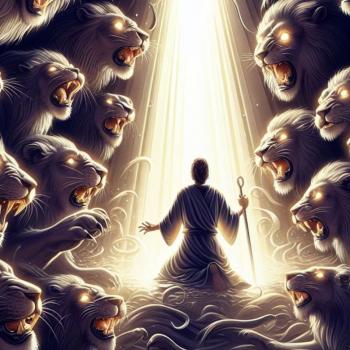Contrary to popular belief, in Judaism, we do not celebrate holidays as historical events. There are no commemorating events in the colloquial sense. In fact, nothing we do in Judaism has to do with the past. What concerns us is the present.
The Jewish idea of a memorial day is much like the way a person might remember something emotional, traumatic, or life changing. When individuals reconnect with such episodes from their past in a deep way, they start to feel a bit of what it felt like when the event actually occurred. Their heart beats faster; they begin to sweat. The recollection of their past has an impact on their present. They are not merely remembering what happened, they are re-experiencing it to a certain degree. They are living with a flavor of the event that occurred way-back-when today in the here-and-now.
Today we celebrate the holiday of Purim. Like all holidays, it has its "commemorative" event that we continue to experience annually.
On Purim, we celebrate the salvation of the Jewish people from the Hitler-like Haman who planned to annihilate the Jews in a one-day genocide, an elaborate and well-orchestrated plot that was to involve the participation of the entire Persian empire, which encompassed 127 countries at that time. However, this salvation is not like that of the exodus from Egypt. There are no supernatural miracles, no water turning to blood, no seas splitting. Instead, the salvation of the Jews, and their ensuing victory over those that sought their destruction, took place by way of natural and political events.
What seemed like random and disconnected events could easily be taken as a string of Godless coincidences, leading us to believe that the Jews just got lucky with how things turned out in the Scroll of Esther. In fact, the word "Purim" itself means "lots"—the game of chance, luck, and coincidence—hinting that what this holiday is all about is how we see the concept of "chance" in our lives.
To further stress this point, in the Scroll of Esther, there is actually no direct mention of God. Who would have thought that in the Bible, there'd be an entire section without God showing up? But show up He did, just not in a revealed manner. This is what the Purim holiday is all about—seeing God in the supposed "chance," "luck," and "coincidences" in our lives; seeing God in the natural events and the political maneuvering. For this reason, we dress up in costumes and wear masks on Purim, heightening our awareness of the reality that God is constantly enclothing and masking Himself within the natural and within the mundane. When we internalize this, we come to see that really it's not a question of the miraculous versus the natural, but a question of the revealed miracle versus the hidden miracle.
Let me give you a modern example of what I mean:
In the year 2006, Eric was new to the city of Be'er Sheva. As a recent transfer student to Ben Gurion University, he had been to his volunteer job at the pound to walk dogs, for which he received a discount on dormitories, numerous times. This time, however, upon entering the office, he was met by a young Russian couple staring at him with long, desperate faces. On the counter in front of them was a box that was meowing with a volume that could only come from some very large and powerful kitty lungs. At least that's what he thought before taking a peek at the smallest kitten he had ever seen.
The Russians had been arguing for some time with the head vet of the pound, who refused to take the kitten into their care. Both sides insisted that they had no way of keeping up with its needs at such a young age. The young couple turned to Eric and started begging him to take the kitten and give it a try.
Eric told them told them that he was in the process of looking for a job, had a lot of studying that needed to get done, and had painting to attend to. On top of that, he lived in a dorm room with a really picky and odd roommate. There was no way he could take in a newborn kitten with its umbilical cord still attached.
They just kept looking at him anyway . . . and he kept staring at the kitten sitting in a box from a recently purchased garbage can with its eyes closed, legs wet from a little pee, and begging for food from a mother that was never going to arrive to feed it.
"You're buying the food, a------!" he scolded.
The vet on location gave Eric a quick tutorial in the care of newborn orphan kitties.
Eric was astounded to hear all that needed to be done. He was to feed the kitten every two hours with kitten formula that had to be mixed just right. After eating, he needed give it a belly massage to help the digestive system along. In order for the kitten to go to the bathroom, he required a little tickling of his still undefinable parts.
Eric realized this was going to be some hard work. He was even going to need to wake up every two hours in the middle of the night for feedings . . . just like a human mother does for her child.





